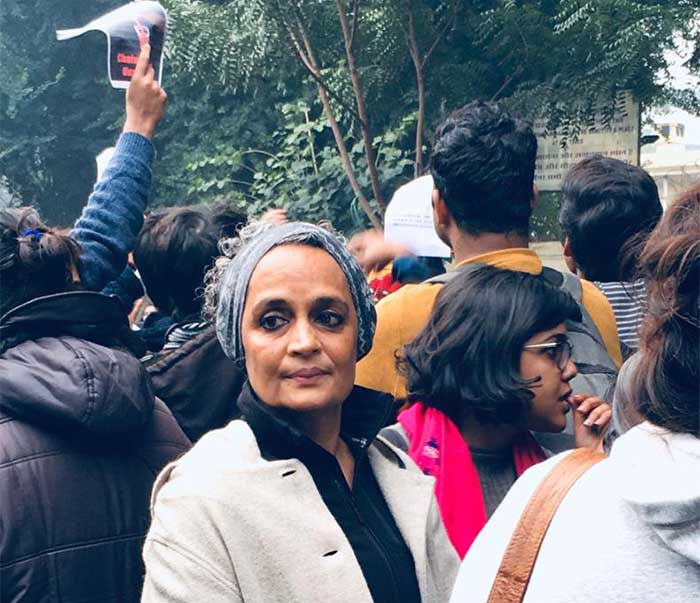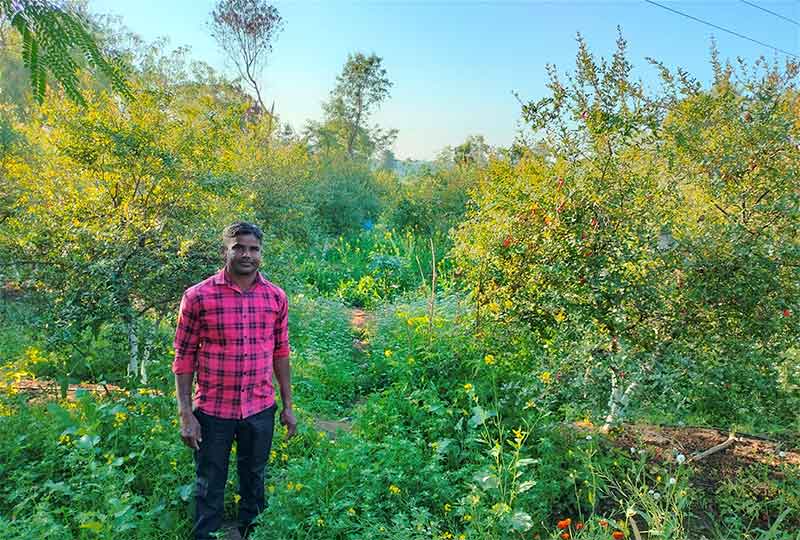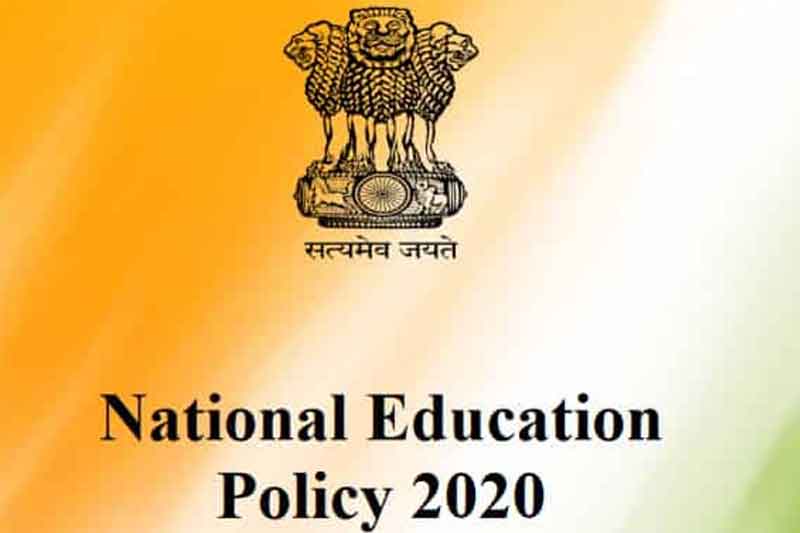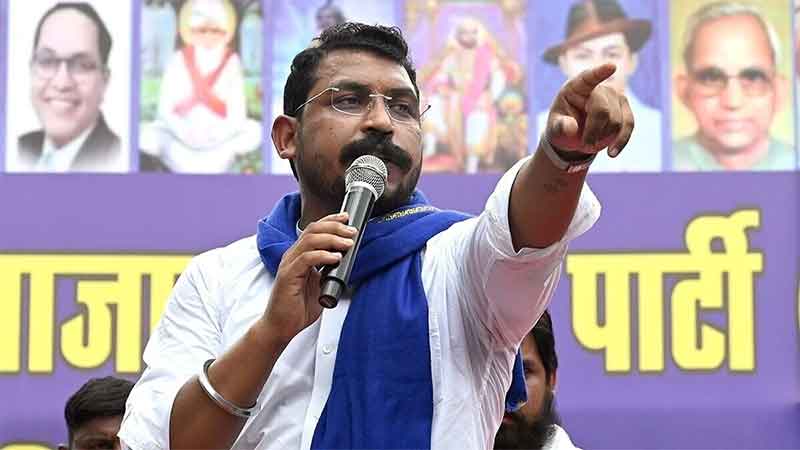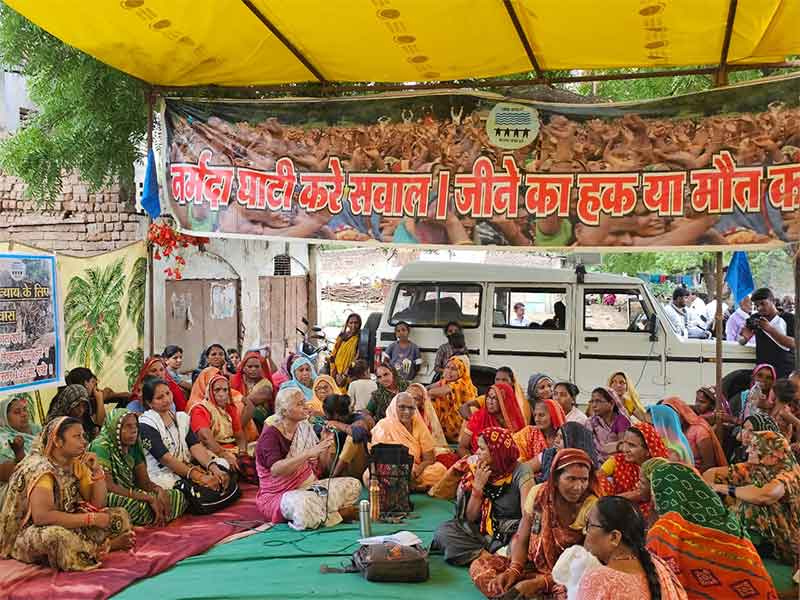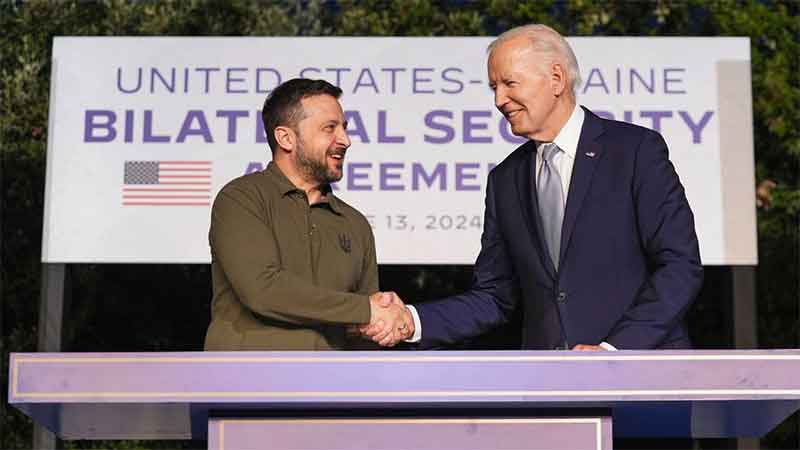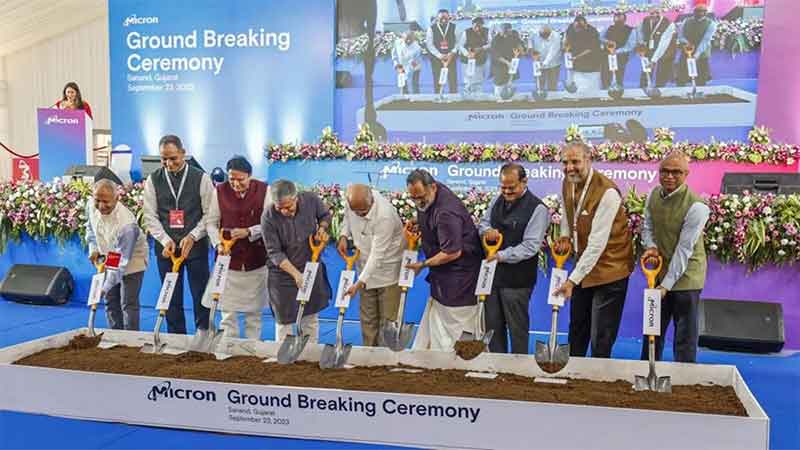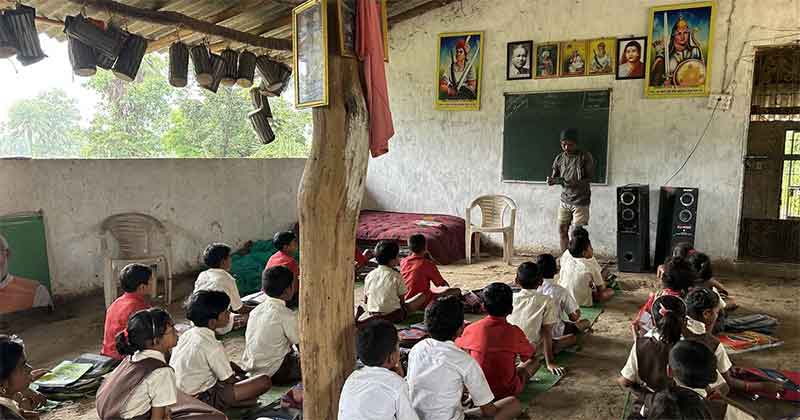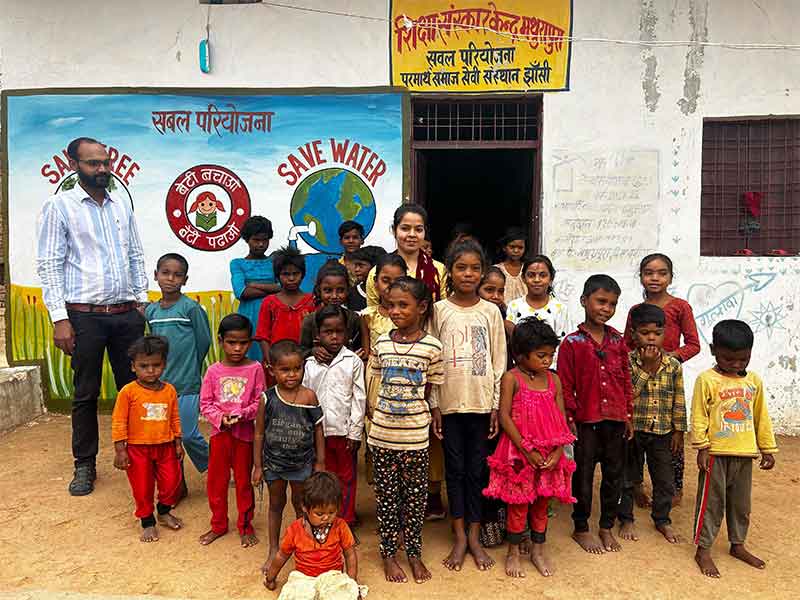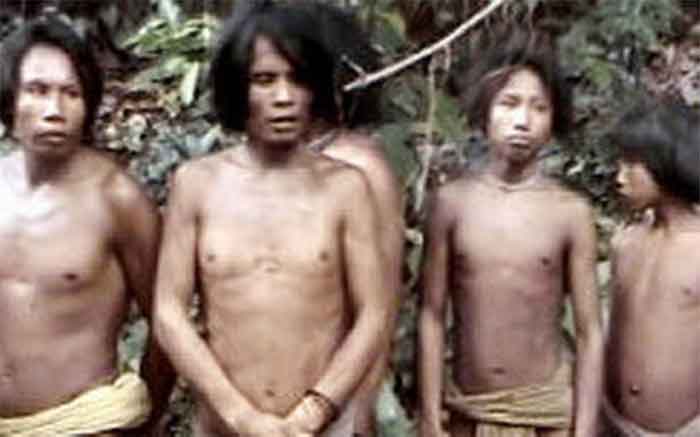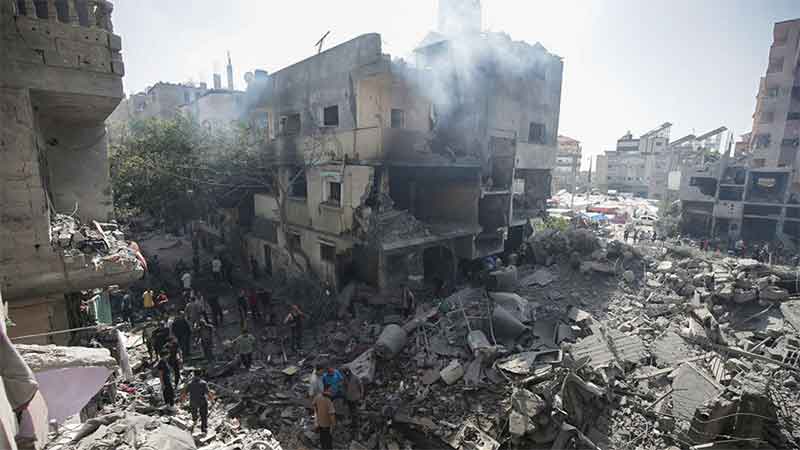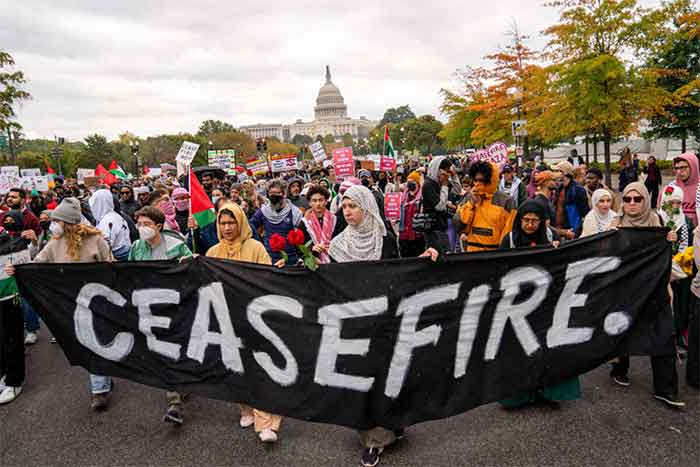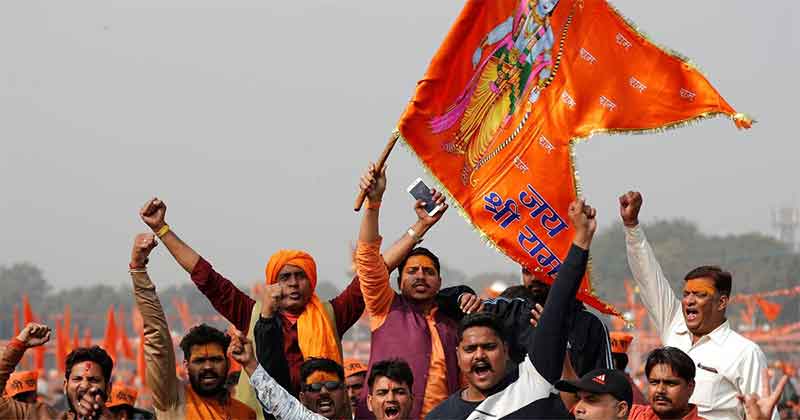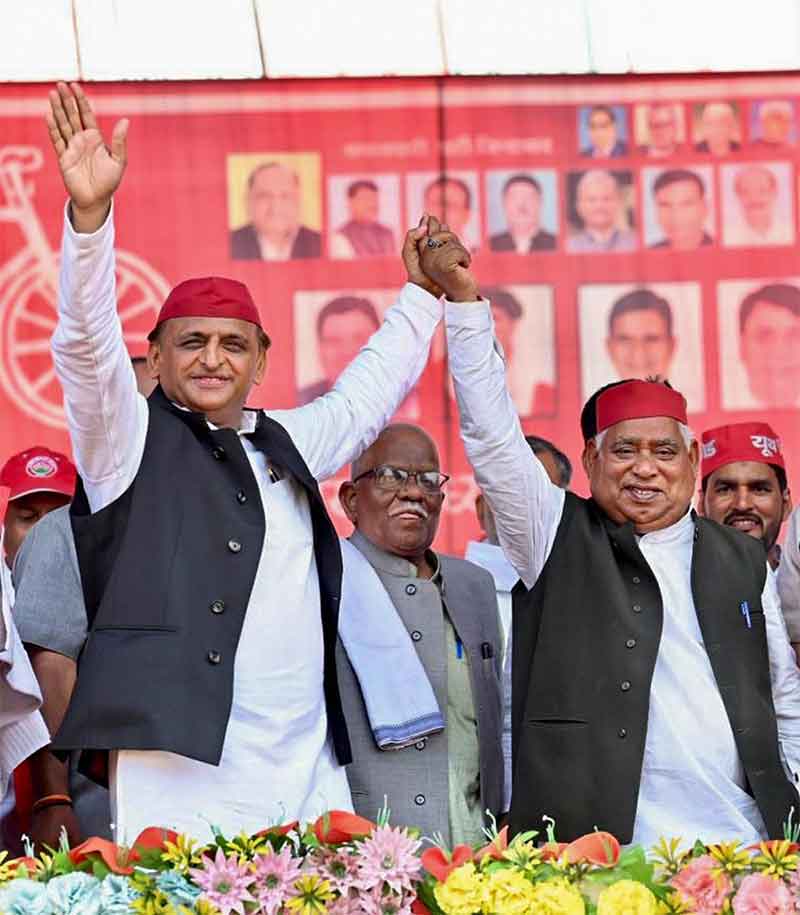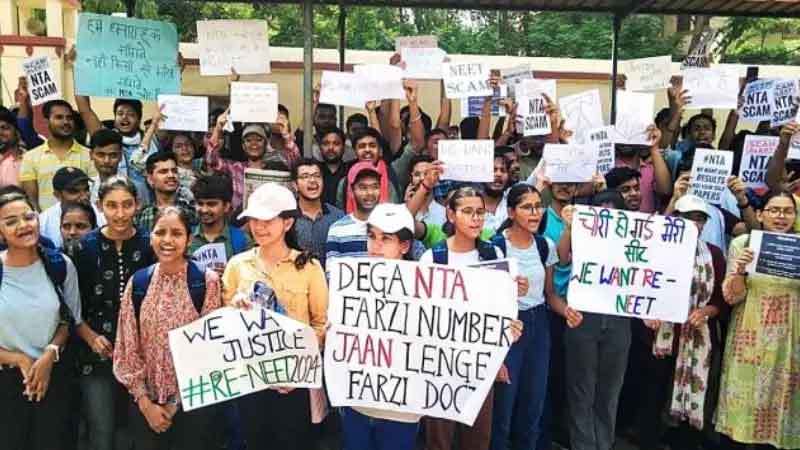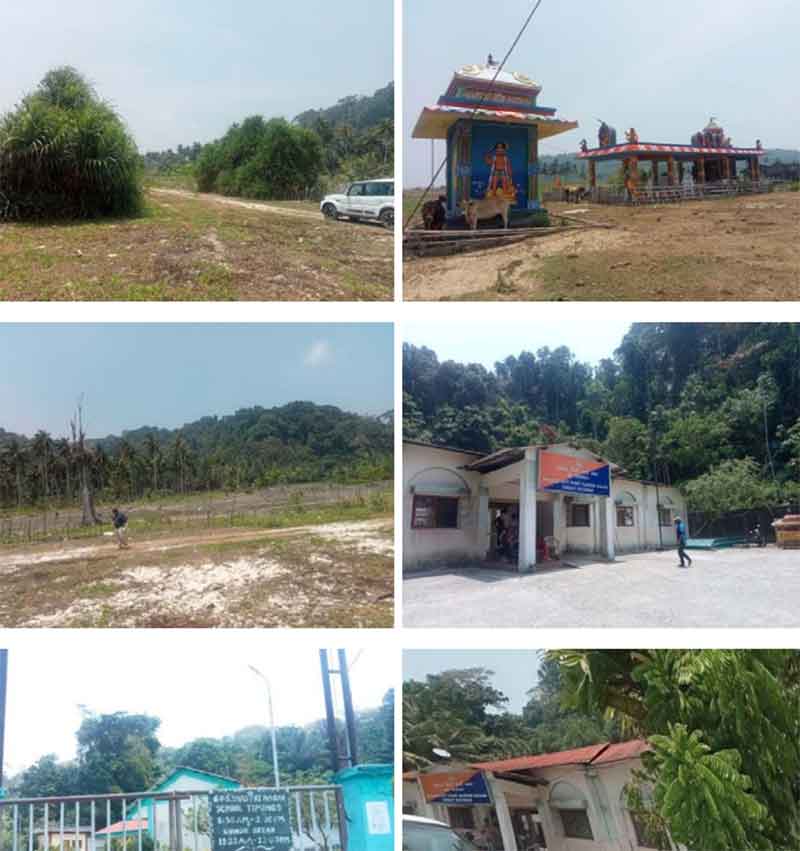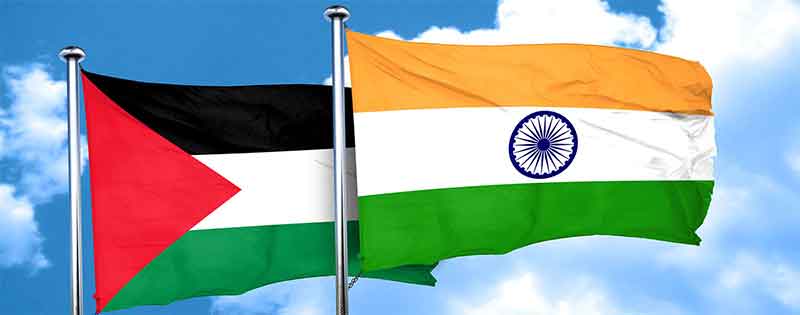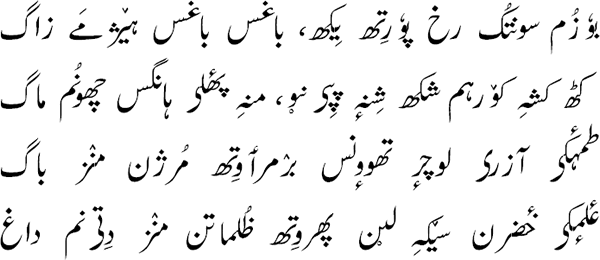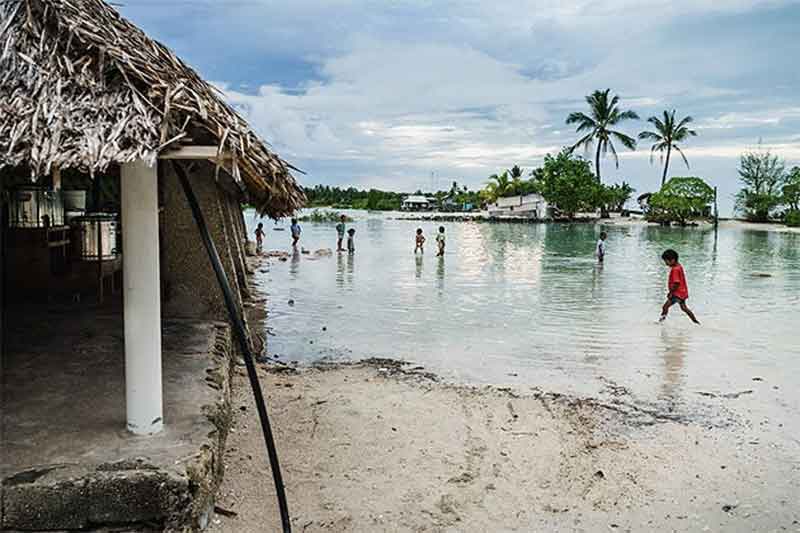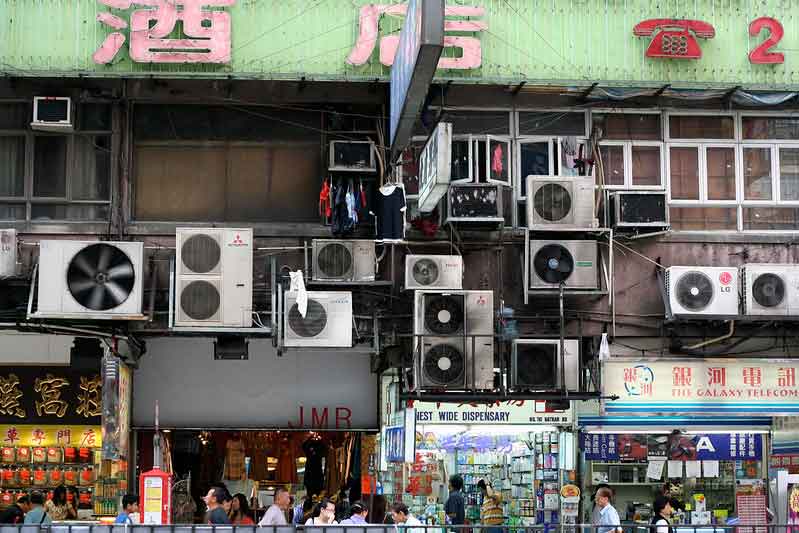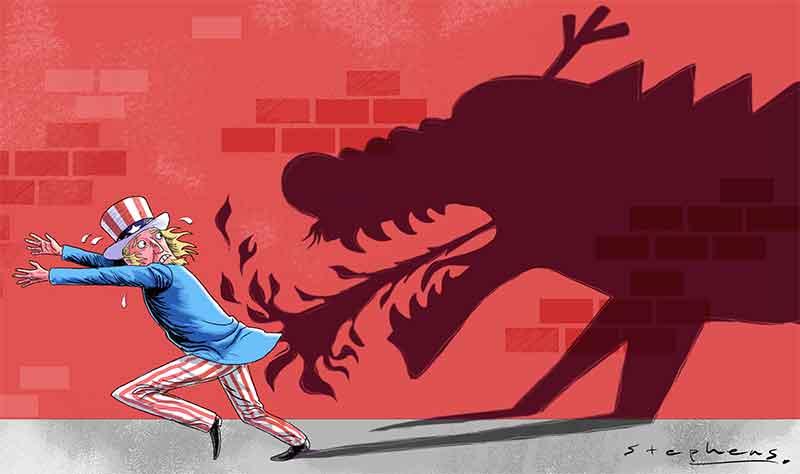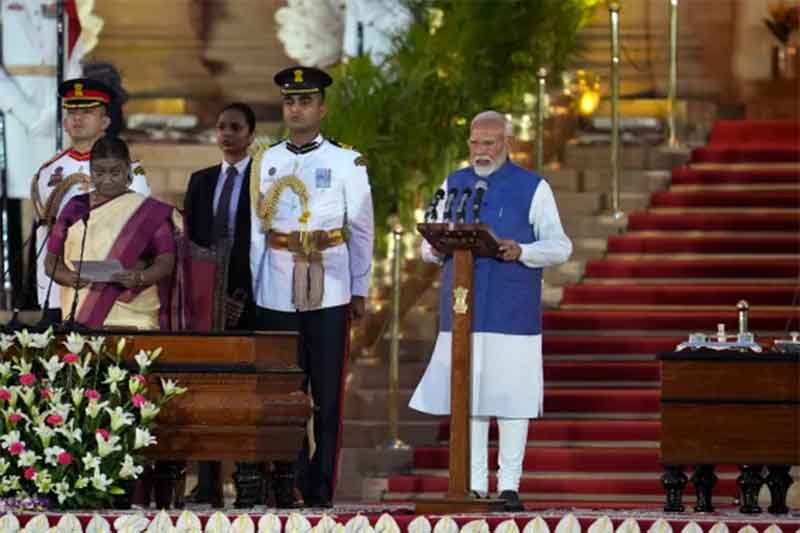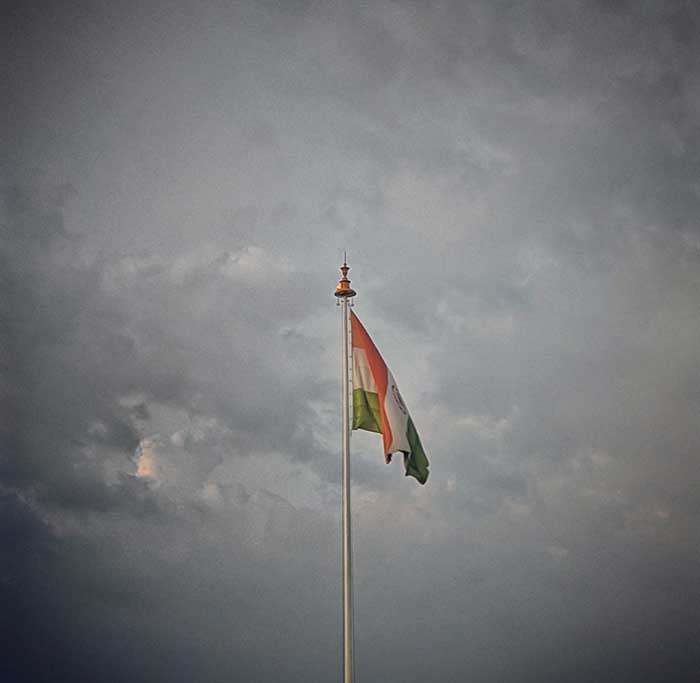
As we approach the last stages of the electoral battle in India, I reflect upon the ethical and moral meanings of the term ‘corruption’, a term that was repeated ad nauseum in BJP’s campaigns (before they remembered their original plank, the Muslims, followed, later on, by invocation of Dalits). Irrespective of the final mandate, I felt it pertinent to remember a few faces, and some of the actions of the BJP parivar, in order to decode the term ‘corruption’ and bring to fore the origins of the term culled from various dictionaries including (since the Hindutva Parivar is so into) Sanskrit and Hindi. In fact, ever since the Delhi Chief Minister, Arvind Kejriwal was arrested (since released), the mainstream, entrenched (into the power lobby) media had been brandishing the term corruption until it realised that common people were more concerned about employment and costs of living. Now, of course, the discourse has gone bizarre, declaring Modi to be greater than Jagannath, in one case, and an avatar, or the chosen one, in other cases. We already watched a public theatre of the absurd on January 22nd, 2024, where a self-obsessed Modi walked alone (initially) into the sanctum sanctorum of the newly constructed Rama temple at Ayodhya, cheered on by sycophants from the Hindi cinema industry, and industry lobby. All these images project one of the original meanings of the term ‘corruption’, which is, ‘perversion’, evident in most of these displays. At another level, there are certain descriptions of symptoms associated with yet another malaise that needn’t be named here (for anyone who follows psychoanalysis should be familiar with it), and it is important that people of India understand very clearly as to whether we really should give power over to any politician with such tendencies, as (taken from various internet sources): ‘unreasonably high sense of self-importance’, ‘requiring constant, excessive admiration’, ‘expecting to be recognised as superior even without achievements’, ‘making achievements and talents seem bigger than they are’; ‘preoccupied with fantasies about success, power, brilliance, beauty’, ‘critical of, and look down upon, people’, ‘inability to recognise needs and feelings of others’, ‘behaving arrogantly’, ‘bragging a lot and come across as conceited’, ‘belittling other people’, ‘hyper sensitivity to criticism, rejection or failure’, ‘lack of empathy’, ‘faking humility’. World over, we are increasingly witnessing male leaders with such traits.
I wish to point out that instead of limiting the understanding of corruption to the narrow gamut of monetary aspects, even though that does have ethical aspects, in the present context, after having watched the entire electoral process unfold (including the instances of violations of the model code of conduct by the ruling party’s candidates, and in some cases, the voters in some constituencies), I want to take time to remember some historical moments as examples.
And as I revisited those moments, I thought to myself, that one would much rather have a country which may not enter the league of the trillion dollar GDP gangs of the world, but be able to provide food, shelter, education, health, dignity, equality and peace to each and every citizen, irrespective of religion, gender, caste, creed or language and in fact even provide shelter to those seeking refuge (as mandated in the UN, which some countries continue to follow). One would rather have a nation where diversity of ecology and eco-systems was understood, as much as preserved, besides respecting diverse ideas of rivers, mountains and lands, than one that competed with the wealthier nations to build bullet trains, bigger dams, four-lanes dissecting mountains’ lungs and hearts, and ropeways, dislocating farmers, fragile eco-zones and the poor in the process. One would rather have a nation with freedom to love anyone (irrespective of gender, caste, religion, class) and freedom to dissent.
A purely monetary understanding of economy, just as a singular universal religious ethic (Vedic Sanskritic Hinduism) for a diverse nation, has done the damage that it had to do. It is time now (that many have seen the true faces of many of the well-turned-out mainstream media persons, Ministers of the ruling party, and PR people were seen in full glory) to look beyond the electoral battle, into the future, and in order to do that, revisit some devastating tragedies that were inflicted upon bodies and spaces of this country. I categorised these within the broader frames of Societal Fabric, Ecology, Economy, Buying Consent, and Freedoms. I present just a few examples within each, referring to some events, not in chronological order, not too far back in time, because many may be added to these (from even farther back in time), should anyone care to do so. It is time to think beyond the ‘brashtachar’ (of the kind that BJP is quick to portray), the E.D raids, Income Tax, etc. and look at the deeper malaise that has already begun to break families and friendships in the larger society, increasingly polarised and violent.
Social Fabric
Instance 1: Lest we forget Akhlaq of Dadri.
Har Hatya ke Baad
Khaamosh ho jaate hain hatyaare
Aur unke mitragan.
Unke daanton ke beech phanse rehte hain
Taaza maans ke gulaabi reshe,
Rakt ki kuch boonden bhi chipki hoti hain
Hothon ke aas paas,
Par aankhein bhaav shoonya ho jaati hain
Dharti par nishcal padi
Kuchli-nuchi mrut maanav deh ko dekh kar
Hatya ke baad hatyaare bhool jate hain hinsra hona
Kuch samay ke liye…
Jab sab khatm ho raha hota hai
Tab phir se tumhari taraf dekhta hai ye udaar samaaj
Hamaari pracheenta aur hamaari shuddhtaa ke rakshakon
O hatyaaron! [Rajesh Joshi, From the poem, Dadri ka Akhlaq]
Loosely translated to mean that after every murder, the murderers and their friends turn silent, even as the remains of the flesh of their victims’ bloodied bodies are stuck to their teeth, mouths having signs of blood on them, while their eyes stare vacantly at the mutilated dead body on the earth. After every murder, the murderers forget, but for a while, to be violent. And then, when all is done with (over), again the liberal (magnanimous) society looks at you, oh you, protectors of our ancient-ness and purity, oh you, murderers!
On 28 September 2015, Mohammad Akhlaq was beaten to death by a Hindu cow vigilante mob in Dadri for allegedly consuming cow meat.
Instance 2: Lest we forget (2014), Pastor Sanjeevaiah, of Vikarabad, Telangana, who was attacked (and succumbed to injuries) by the Hindu vigilante Hindu Vahini group. His death brought other similar attacks (such as on Pastor Moses, who I had met later) on mostly dalit Christians (SC, OBC) in Nalgonda district of the time, into limelight. Pastor David, who I had met then, at Narketpally had told me that “BJP has been doing a lot of groundwork here among the youth… When Narendra Modi visited Hyderabad, two truckloads of young people went from villages nearby, mainly from Nakkalapally, four kilometers from here. Gandikota Raju, who is the local organiser in Narketpally mandal, for RSS, VHP, Hindu Vahini branches, took the youth from here to attend the event in Hyderabad. He is one of those who attacked Pastor Moses…” At the prison in Nalgonda, I had met (with due permissions) the group arrested under Section 307 (attempt to murder) for the assault on Pastor Moses. Gandikota Srinu told me he attacked Pastor Moses, “to teach them a lesson so that they do not convert any more people from our community or villages. We are filled with pain (baadha) to see them (the Christian preachers) come into our people’s homes and asking them to convert. Hindus have 30,000 gods and goddesses (mukkoti devatala gala dharmam maadi), and the tell us, ‘leave all these and accept only one Yesu! We are born into Hinduism, it is our dharmam; how will we feel if they ask us to leave our own dharmam? If they ask my mother to roam around without bottu in front of my father, how am I supposed to feel? That is why we attacked them. So that they stop doing this to other people.” Others with Srinu included a young BTech student, who aired similar views on Hindu religion and the conversion issue.
Instance 3: Lest we forget, Rohith Vemula, a Dalit PhD scholar of the Hyderabad Central University, committed suicide by hanging in a hostel room of the university, on January 17, 2016, after having been suspended (along with four others) by the university (later revoked for want of evidence) earlier for alleged assault of a ABVP student leader on campus. In his suicide note he had written: “The value of a man was reduced to his immediate identity and nearest possibility. To a vote. To a number. To a thing. Never was a man treated as a mind. My birth is my fatal accident…If you… can do anything for me, I have to get 7 months of my fellowship…See to it that my family is paid that…”
Instance 4: Lest we forget, on July 11, 2016, four young men skinning a dead cow [their vocation], along with another aged person, were mercilessly thrashed by a group of cow-protection vigilantes in Gujarat’s Una. Stripped and tethered to a car, the four were paraded publicly in Una. The whole violence was brazenly video-graphed and shared live over internet. This was followed by a novel protest and strike in Gujarat by safai karamcharis (sanitation workers), who refused to pick up carcasses.
Ecology (The Least of Concerns of the Incumbents)
Instance 1: Freddie, Tibilisi, Elton, Siryaya (nay Shaurya, Dhatri, Gaurav, Jwala), Sasha, Uday, Daksha, Tejas, Suraj (racism in naming, too), besides four yet to be named cubs of Cheetahs died in the Kuno National Park. Brought all the way from Namibia and South Africa amid the din of jingoism, their sole crime being that they had once roamed about in the Indian forests. Trophies they were, the for the then ruling classes, and trophies they became, yet again, for a new ruling class and its project of vain glory and false national pride. They do not figure today in the electoral discourse; if they had, many pertinent questions should have been asked of the incumbents regarding the reasons for their deaths. Going by the example of that strange, surreal land, ‘Vantara’, we may one day (if the current disposition continues) need to pay a price, literally, to rich manor-borns to see wild animals in large confined spaces, whose original lands and forests will have been usurped from them for setting up commercial global enterprises.
Instance 2: Even as mainstream media was raving about the moon and Chandrayaan (no longer a novelty considering the first such was way back in the 1960s by others) many of us in the mountains in Himachal were reeling under the havoc caused by series of landslides in several places with losses of many lives, forests and homes. Nearly all who watched the destruction (even as the Prime Minister refused to declare it a national disaster, since it was a Congress government in Himachal) realised the implications of the heavy-duty drilling and cutting of mountains for four-lanes (another ‘National’ idea). Signs of the devastation of last autumn are still visible on the entire stretch where rivers found ways to flow for want of any other alternative. The tunnels speak of the primary concern of the ruling powers – commerce over ecology.
Instance 3: a 21-day Climate Fast by Sonam Wangchuk in Ladakh in March 2024. He said (to an international media outlet), “In Ladakh, we are in a very important position to be messengers from the frontier. We have a responsibility…to tell the world what’s happening with us today, and that tomorrow it will be happening to you… If Ladakh is left open to this kind of free-for-all, with no safeguards, mining companies will surely come. We hear reports that they are already scouting in the mountains and valleys. Huge hotel chains are also eager to come here. There simply won’t be enough water in our high-altitude desert to support these new demands.
Every drop here is important. The tourism industry has already caused a lot of havoc in terms of pollution and water use. What people fear is that without these protections our culture and our way of life — which has been finely tuned over thousands of years to survive in these mountains, in balance with the resources and the environment — we won’t be able to sustain it. What we are demanding — and what the government had promised — is the provision of autonomy to the Indigenous Ladakhi people. But after the ruling BJP won in the elections, it backtracked on those promises…”
Instance 4: Recently (February 2024), the Ministry of Environment, Forests and Climate Change, under the so-called Green Credit Programme, had identified over 10,000 hectares land in 13 states for tree plantation under the green credit rules, paving way for the implementation of a programme that will lead to forest diversion for commercial private sector projects.
Other instances, yet to be scrutinised in-depth: Intervention in the marine-scape of Lakshadweep (in the name of yet another jingoistic slogan to boost tourism-wedding destination in lieu of Maldives); the Parvatmala ropeway projects across the country including in eco-sensitive zones in Uttarakhand and Himachal Pradesh and; reconfiguration of riverscapes, mountains, land and seas under a misleading unified idea is damaging to eco-systems and climate regimes.
Economy
Instance 1: 8th August 2016, Demonetisation was announced by Prime Minister Modi, and the very next day Paytm (company) issued a full advertisement congratulating him for this. And as a result over the next several years, earned massive profits. Deaths and suicides and massive trauma ensued among the poorer sections, lower middle classes and daily wage earners such as Hanumanthu, Baburao, Suryanarayana, and others not faces mainstream entrenched media would know or remember. “Idi anyaayam, amma (This is injustice); the government does not care for people like us; where do we go?” said Hanumanthu, an elderly street vendor in my neighbourhood of those years. Years on, the same Rs. 500 notes returned in circulation and the Rs.2000 note, that was then introduced, became redundant. The game made digital wallet private companies richer by the millions.
Instance 2: Yet another sudden announcement was the lockdown (Covid 19) of 2020 March. The mass exodus thereafter, the deaths on the streets, the “opportunity” that the PM Modi saw in it (as he himself announced then) led to sudden increase in private sector profiteering from pandemic (including by hospitals, the IT companies, internet boom, OTT platforms, companies such as ‘Byju’s’ and others) and impoverishment of the masses, again, daily wagers and working classes across the country. Impositions of these kinds were top-down, brash, unsympathetic to the poorest sections.
Note: None of these instances ever saw the Prime Minister walk down and meet the distressed people. Today he does road shows by the dozens, but from a higher vantage point, of a moving vehicle. Top-down, it remains.
Instance 3: Year 2018. ‘Threat to Nation’s Economic Security/ Interests’. The organisation was called Greenpeace, whose accounts were frozen for having been engaged with protest against coal mining projects. The Modi government had also commenced surveillance on Ford Foundation and its funding activities in India, calling them a ‘threat’. This meant nobody could work on these issues of food security, rights-based work, agrarian order or Adivasi and Dalit rights without facing tough questions or undue harassment.
Instance 4: Tax holidays. Tax evasions. Indian government cut corporate tax to 22 per cent for domestic companies and 15 per cent for domestic manufacturing companies and other reliefs in the year 2019. Meanwhile, media reported many companies that misused even the tax holiday schemes of the government (one example, Vedanta mining company, on which a penalty of Rs. 3.48 crore was imposed in 2021). Then there are private companies that filed for bankruptcy thus avoiding liabilities include Go First – owed Rs. 6519 crore to different banking establishments. There are many such companies that enjoy the insolvency clause. Tax holidays are available to select start-up companies and investors. The present regime is dedicated to the rich.
Cover-up projects such as ‘Make in India’ (making things in India with cheap Indian labour) are yet to be critically financially audited and evaluated.
Note: Economy, incidentally, is also lives and livelihoods of the poorest in India. Perhaps the question should be as to how is the nation’s economic security going to be protected against frauds of big investors. In the final case, if a displaced adivasi, or dislocated dalit could invoke the same ‘legal’ provision of ‘threat’ to her or his ‘economic security’ (which is also the economic security of the nation), one can imagine the wonderful possibilities for the subaltern.
Freedoms (versus Buying Consent)
Instance 1: March 12, 2024. National Creators Award. Youtubers – such as Ranvir Allahabadia, Keerthika Govindhasamy, Abhi and Niyu, Kamiya Jani, etc – were rewarded with these awards in different categories. In other words, they were purchased for advertisement and PR for the BJP government, as much as being rewarded for upholding the state, presenting a glorified account of everything Indian, based on myths rather than well-researched facts, including biased opinions about Islamic rulers and ancient Indian science. Right after the awards, they started electoral campaign for the incumbent regime. As though the already bought TV channels were not enough.
Instance 2: Electoral bonds scam and the unholy nexus of money and power through monetary dealings with big industry (and sometimes buying money power through intimidation and threat of the ED raids)
Instance 3: Manipur violence. Other racial attacks on people from the Northeast reported from different places in India in the last few years.
Instance 4: Undoing democratically elected (non-BJP) governments in different Indian states through money, inducement of other kinds, muscle power and utilisation of bureaucratic machinery. In other words, not knowing how to accept defeat (taking a cue from Donald Trump in the USA) with dignity and composure.
Other instances: 1998, MP, near Jhabua, the rape of four nuns by the Sangh Parivar, January 1999, torching to death of Fr. Graham Staines and his children in Keonjhar (Odisha) by the activists of Bajrang Dal; in today’s times, hate speech (and non-action against perpetrators); the very idea of “Love Jihad” and harassment and violence ensuing from that); bans on food cultures (beef); arrests of stand-up comedians, journalists; incarcerations without just trial (Omar Khalid, among others); freedom ensured for sexual offenders (the case of the women wrestlers against Brij Bhushan Singh who is campaigning, case of Prajwal Revanna, among others)…
Of course, lest we forget, Gujarat, post-Godhra (or Godhra itself), the mother of all violent (post-independence) upheavals that has brought us all to this day and stage.
So, What is Corruption?
How long will some people remain happy and delusional regarding how “clean” and “correct” or “non-corrupt” the incumbent BJP regime has been or is? Let me quote some of the (various) dictionary meanings of the term, in order to contextualise the long list of instances revisited above.
Brashta. Meaning: Decayed, Vicious, Depraved. [Source: Sanskrit-English dictionary by Vaman Shivram Apte]
Bhrasht – (bhrashtata). Meaning: Perversive, foul… [Source: Hindi-English dictionary, Father Emmanuel Bakhla]
Moral deterioration. [Source: Oxford concise English dictionary]
Corruption (l. corruption < corruptus) a changing or being changed for the worse… [Webster’s New World Dictionary]
In conclusion
Recently our postwoman delivered my updated voter identity card. The card came with a pamphlet titled “Elector’s Pledge’ (in English and in Hindi): ‘We the citizens of India, having abiding faith in democracy, hereby pledge to uphold the democratic traditions of our country and dignity of free, fair and peaceful elections and to vote in every election fearlessly and without being influenced by religion, race, caste, community or any inducement.’
While respecting the sentiment of it all, some of these points seem laughable, considering that religion, caste and community have been utilised by political parties (especially, religion, by the BJP and its allies) as a plank always.
By way of a tribute to those who needlessly lost their lives, one dreams of returning to some simple freedoms – to love, eat, sing, laugh (at any kind of jokes, especially political parodies), make a film (of any and every kind), dance (to any rhythm or music), to pray (with equal decibels allowed for all religions in their respective houses of worship), and, to accept any religious faith, or none at all, to dissent, and in the end, to keep reminding the state of its primary duty towards the well-being of all who constitute this nation.
R Umamaheshwari is a writer (independent historian-journalist) and author of Reading History with the Tamil Jainas: a Study on Identity, Memory and Marginalisation (Springer), among other books.


